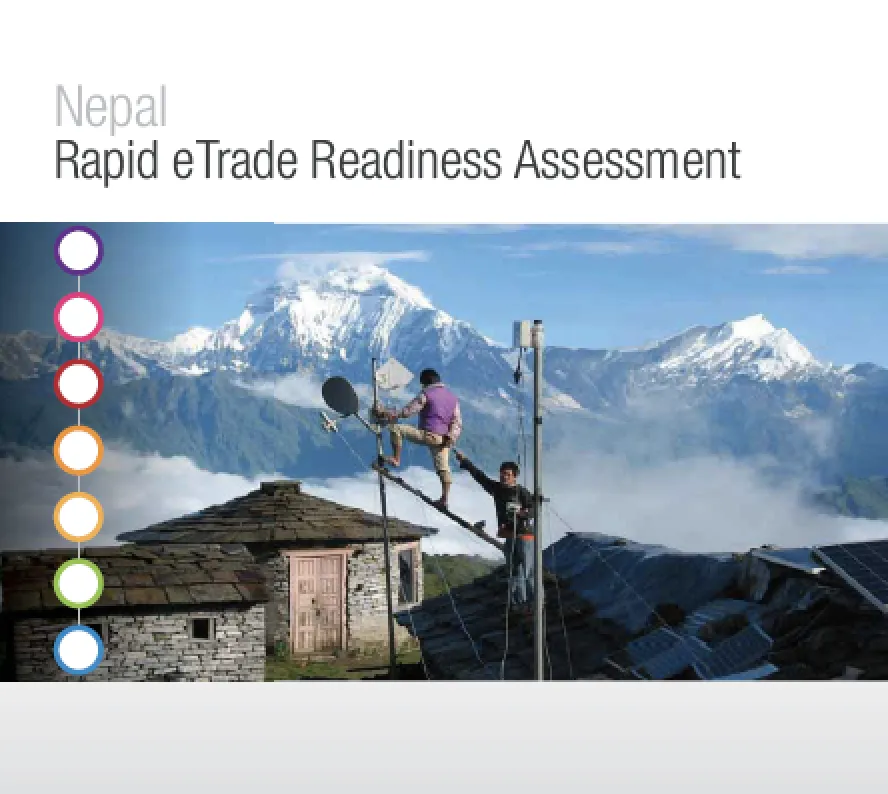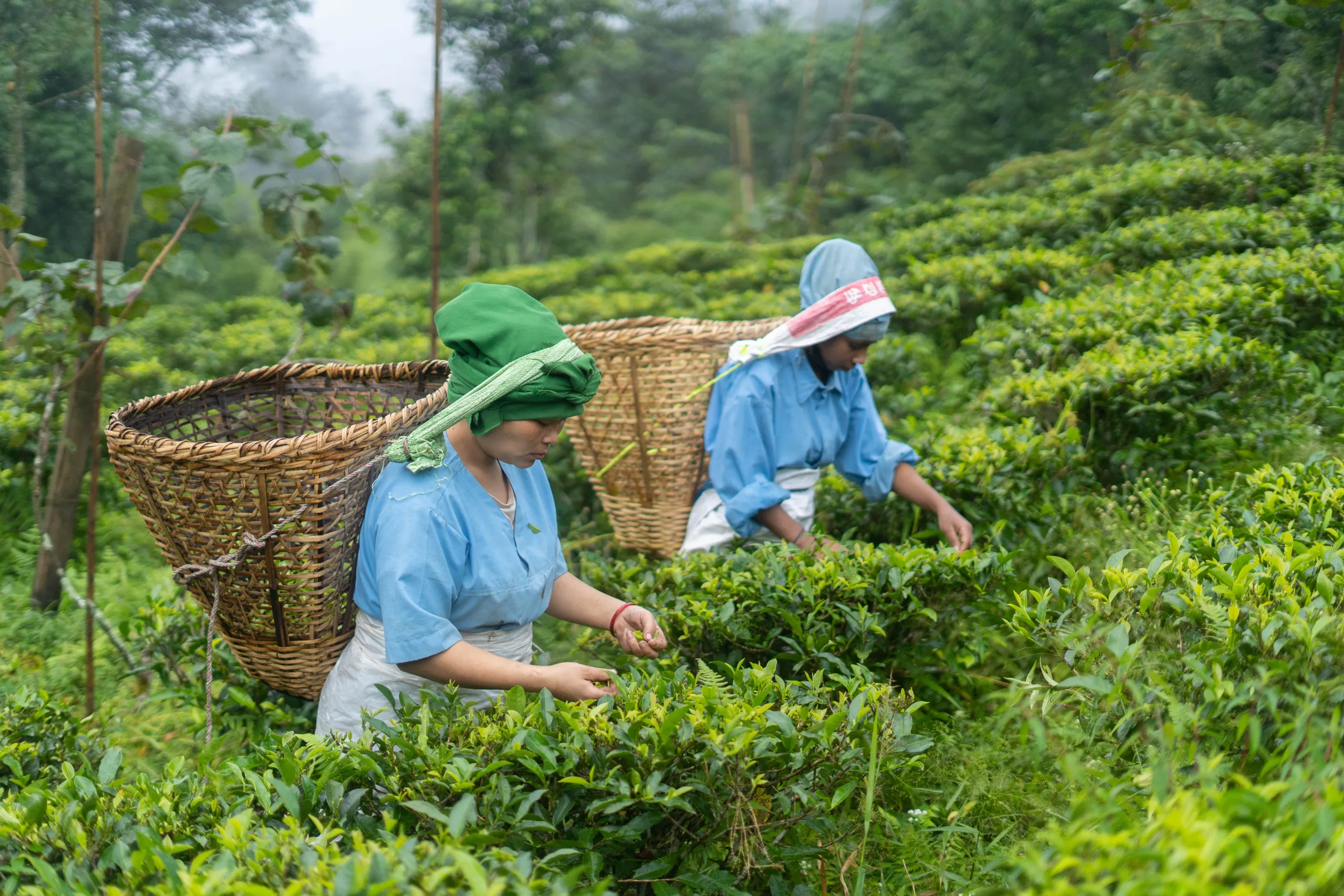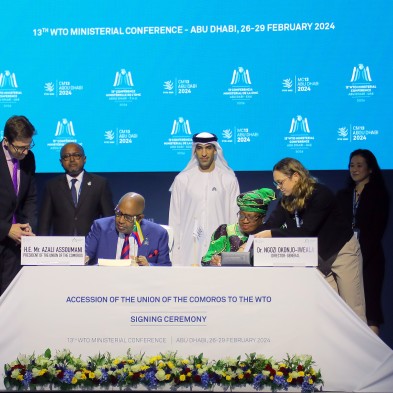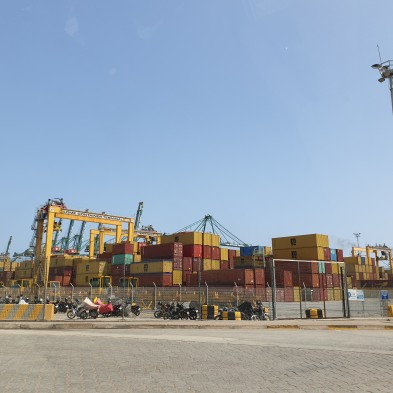
With EIF support, trade has been incorporated as a priority area in Nepal’s 13th Development Plan.
The Ministry of Finance allocated funds for key ministries to implement the recommendations of the EIF-supported Nepal Trade Integration Strategy (NTIS). The NTIS prioritized 19 products with high export potential and the EIF is providing targeted assistance for three of those products: pashmina, ginger and medicinal and aromatic plants.
In order to ensure continuity, all activities implemented by the EIF are integrated into the Government’s organizational structure.


EIF worked to ensure faster growth, poverty alleviation through job creation and enhanced sustainability of trade development.
Results:
- The NTIS was validated in November 2015 and represents a major milestone in Nepal’s efforts to integrate trade into the national economy. The NTIS charts out necessary action in cross-cutting areas such as trade capacity-building, trade and transport facilitation, standards and technical regulations, and intellectual property rights. The NTIS also identifies priority potential export sectors.
- Nepal was supported in developing its 2015 Agriculture Development Strategy with a focus on trade.
- Trade was incorporated in sector strategies for tourism, industry, health and foreign aid.
EIF worked to increase incomes of ginger farmers through improvements in Sanitary and Phytosanitary (SPS) arrangements and value addition for exports, together with partners FAO and STDF.
Results:
- 1,891 farmers were trained in seed production, storage, marketing, SPS/post-harvest loss, safe handling and location-based ginger production.
- Created ginger washing and processing facility to increase exports and garner new markets for Nepal's ginger.
- Increased farmer level income by 62%.
- Decreased post-harvest loss by 30%.
- Increased ginger rhizome production by 4%.
EIF is working to contribute to the economic and social development of Nepal through the export growth of Chyangra Pashmina products.
Results:
- 751 participants trained in international marketing, design/collection development, merchandising, trade fair participation and export readiness
- Supported enterprises increased Chynagra Pashmina exports by 16%
- Diversification of pashmina products from woven to knitted items, increasing enterprises revenue by almost 200% to over US$5 million in 2016
- Contributed to the creation of 214 additional jobs.
EIF is focusing on six districts in the Mid-Western and Far-Western development regions of Nepal. The majority of activities are being implemented through private sector actors who have high interest in a reliable supply chain and strengthened market linkages to cater to market demand. The three desired outcomes are:
- Improving production and manufacturing practices, with a focus on sustainability and marketability of products.
- Strengthening the capacities of Government offices, private associations and locals to coordinated project-related activities.
- Improving market access for value‑added products to priority export destinations through collective marketing and branding.
Results:
- The two main sectoral commodity associations, Jadibuti Association of Nepal (JABAN) and the Nepal Herbs and Herbal Products Association (NEHHPA) had an increase in membership of 20% and 12%.
- 2,535 collectors equipped with sustainable harvesting equipment.
- Supported: (i) 573 farmers to cultivate mentha (Mentha arvensis) in 194 ha land producing 5,505 kg of oil and sold @ NPR1 1350 per kg. Likewise, 56 farmers were supported to cultivate kurilo (Asparagus racemosus) in 5.6 ha land; 597 farmers were supported to cultivate timur (Zenthoxylum amartum) in 7.3 ha land; 283 farmers were supported to cultivate tejpat (Cinnamomum tamala) in 42.6 ha of land; and 191 farmers were supported to cultivate chamomile (Matricaria chamomilla) in 52.6 ha land.



